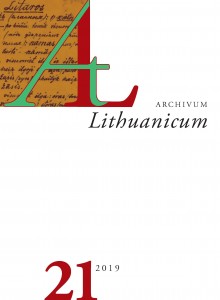Gimtoji kalba mokykloje: Vakarų Europos švietimo paradigmų istorija su šiandieninės Lietuvos prieskoniu
Mother tongue at school: Development of western educational paradigms and the case of contemporary Lithuania
Author(s): Loreta Vaicekauskienė, Daina UrbonaitėSubject(s): Education, Theoretical Linguistics, Baltic Languages
Published by: Lietuvių Kalbos Institutas
Keywords: Mother tongue; Western Europe; Matthijssen’s theory of rationality; elite and new literacy; linguistic literacy;
Summary/Abstract: This article presents an historical overview of ideas and practices of teaching mother tongue (L1, national, majority language) and literacy in Western Europe. The research is based on a focused analysis of secondary sources and aims to distinguish developmental stages of mother tongue education with their characteristic approaches to language and language didactics. The influence of modern language scholarship on language education at the end of the 20th century is discussed, including the teaching of language awareness. The theoretical framework for the research consists of Matthijssen’s theory of rationality, or valid knowledge in education, Englund’s concept of competing meta-discourses about education, as well as academic, developmental, communicative and utilitarian paradigms of mother tongue teaching conceptualised by Sawyer and Van den Ven (2006). A total of four stages of mother tongue education and literacy are singled out: elite literacy (classical Latin tradition); mass literacy (teaching of the national standard), new literacy (teaching of language as communication) and linguistic literacy (teaching scholarly knowledge about language).
Journal: Archivum Lithuanicum
- Issue Year: 2019
- Issue No: 21
- Page Range: 233-254
- Page Count: 22
- Language: Lithuanian

